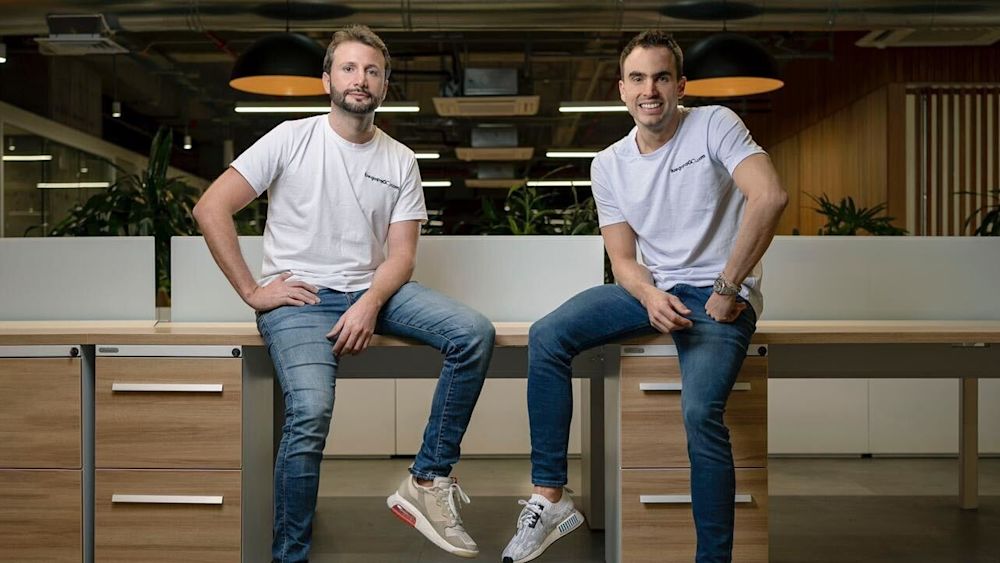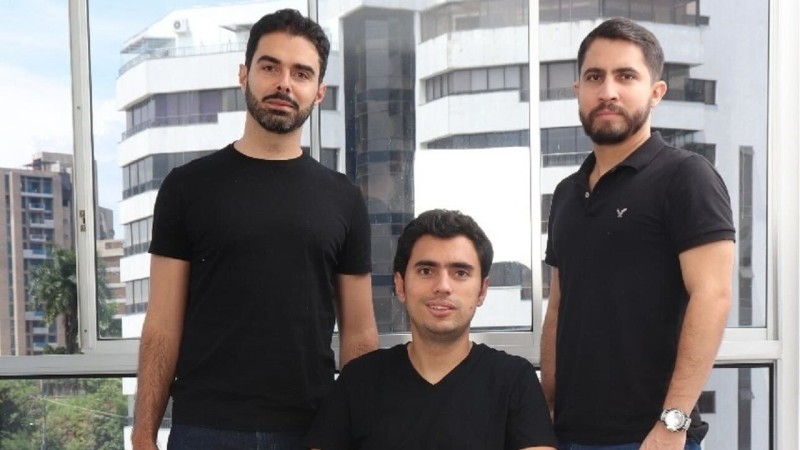- Iterate
- Meet The Team
- Startups Are Banking on a Credit Boom in LatAm
Startups Are Banking on a Credit Boom in LatAm
Table of contents
Buy Now, Pay Later or BNPL is having a moment across the world. In Latin America in particular, fintechs and established banks are betting on the payment method synonymous with online shopping to acquire more customers and offer much-needed payment alternatives to a region that stands out for its unbanked population. The Org rounded up a list of companies building strategic partnerships in the region to capitalize on the BNPL boom.

The payment industry in Latin America is in the midst of a BNPL boom. Buy now, pay later is the latest offering that fintechs and established banks are betting on to acquire more customers and offer much needed payment alternatives to a region that stands out for its unbanked population and need for credit options.
An unintended positive outcome from the COVID-19 pandemic has been the steady reduction of the unbanked population in the region. With the world in lockdown, e-commerce experienced double digit growth globally, but in Latin America growth soared by 36.7%. Any aversion that remained to online shopping and engaging in virtual transactions quickly dwindled as people were forced to find digital financial services, such as debit cards, to access and pay for basic needs when brick and mortar businesses were shut down.
AMI estimates the banked population grew by 24% in 2020 as many fintechs saw an opportunity to provide millions of people the banking solutions they were desperately looking for.
Despite the increase in access to banking, for millions of Latin Americans online shopping is still not entirely ‘online.’ Although the transaction itself is done virtually, most individuals still need to use cash-based alternatives such as voucher payments and bank slips to finalize the purchase. The process is far from frictionless and although people are willing to go through the multistep process to access whatever they are trying to purchase, many transactions are still left unfinished.
This is where BNPL becomes highly relevant: giving shoppers the option to pay in installments on the spot increases online shopping penetration and gives e-commerce retailers a higher sale conversion rate. The BNPL method allows consumers to pay for purchases via short term loans that are often interest free (if paid on time) via a point of sale loan, in which a BNPL provider partners with merchants to offer financing at checkout, or via customized installment plans. Both require credit validation that is overseen by the BNPL service providers who make money on transaction fees charged to the sellers as well as on incurred interest on late payments.
The Org looked into several companies in the region that are banking on the BNPL boom and building strategic partnerships to offer credit solutions.
Sistecrédito + LuegopaGo
Martin Pelaez, co-founder of LuegopaGo, says the startup is the “first marketplace for credit based purchases.” A tech company at its core, it boasts end-to-end integration, meaning none of its transactions have to go through a payment gateway avoiding ‘unnecessary’ fees going to a gateway provider.

LuegopaGo is heavily leveraged on Sistécredito, a credit provider that has been around for more than 20 years and has over three million users and 17,000 allied establishments across Colombia. For Pelaez, “creating a one stop marketplace where people could find everything they needed was a business opportunity waiting to be explored.” He describes LuegopaGo as a Mercado Libre for credit purchases.
Since its launch in February 2021, LuegopaGo has experienced 200% month-to-month growth. The startup acts as a bridge between buyers and sellers and charges a commission for every finalized sale. The marketplace has been very well received by existing credit seekers at Sistecredito. Only 12% of individuals who purchase goods on the platform are new users and under 8% of the transactions are paid with a different form than credit from Sistecredito.
Pelaez and his team are in conversations with several VCs to expand their presence to other countries in LatAm and continue growing their marketplace offering.
Addi
The startup, founded in 2018 in Bogotá, Colombia, has raised over $171 million via a combination of equity and debt funding. With a presence in Colombia and Brazil, Addi provides on the spot financing for people looking to buy items within its network of allies, which currently includes 500 brands in Colombia and 200 in Brazil.

The company’s 100% digital and 100% easy motto signal’s its approach, whereby it allows individuals to get access to credit with just their ID, email and a verification process through WhatsApp. Addi shows all purchase information clearly and transparently and credit approval is subject to a study carried out directly by the startup. The 0% interest offer applies to purchases up to $150 and for selected businesses it’s up to $400 deferred to (three) installments. For even bigger purchases, Addi lets clients pay for up to 24 months at what it describes as “competitive and fair rates.”
So far in 2021 the business has grown by a multiple of 5x; a growth trend that is also being translated to the allied businesses which are experiencing double and triple order growth.
Atrato
As a member of YCombinator’s winter 2021 cohort, Atrato has been dubbed by the accelerator the “Affirm of Latin America.”
In Mexico, the BNPL payment market is expected to grow by 132.3% on an annual basis to reach US$1993.3 million in 2021. In 2021 Atrato raised both a Seed Round of $2.7 million led by Accel and a debt financing round of $15 million in an attempt to take on the positive growth in the country.
For this year, Atrato is aiming to grow tenfold in comparison to 2020 and disburse around 30,000 credit lines, while launching a series of new products and services that support the allied establishments it currently works with.
dLocal + Dinie
dLocal, a Uruguayan fintech payment technology platform, handles mass online payments in emerging markets across Latin America and Asia Pacific. The startup, which has raised over $357 million, recently partnered with Dinie, Brazil’s pioneer API-first embedded fintech that enables digital platforms such as marketplaces and ERPs to offer instant credit to their customers to help them grow their businesses.
Dinie is different to other BNPL providers because it focuses specifically on the needs of small businesses rather than individuals and allows them to access financial services at the point of business and point of sale. Dinie acts as an alternative payment method within the dLocal payment gateway, leveraging existing integrations so no action is required from the merchant’s side to enable the financing option.

Dinie is ultimately enabling customers to easily purchase online and make investments in technology and digital marketing, whilst ensuring their cash flow isn’t heavily impacted given they have an opportunity to match their investment with the revenue they generate later, highlighted CEO and Co-founder Suzy Ferreira.
The company’s mission is to liberate SMEs of the banking oligarchy in Brazil and provide them with the financial tools they need to succeed and prosper.
Create your own free org chart today!
Show off your great team with a public org chart. Build a culture of recognition, get more exposure, attract new customers, and highlight existing talent to attract more great talent. Click here to get started for free today.
In this article


The ORG helps
you hire great
candidates
Free to use – try today